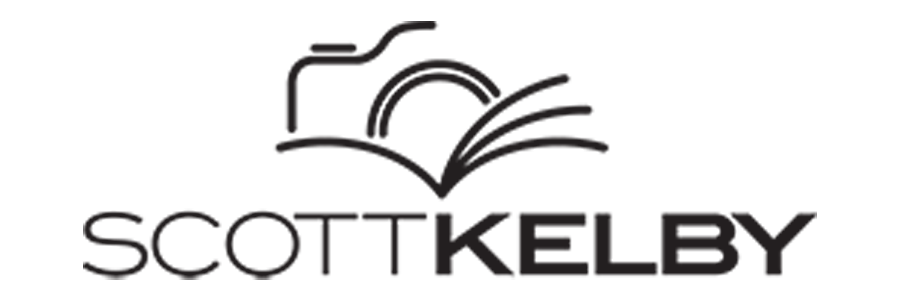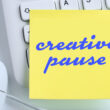Happy #TravelTuesday one and all! I’ve expressed it that way this week because I’m busy typing away from the Starbucks in Oslo Gardermoen Airport where I’m currently between flights, and I’ve just spent a couple of days in Arctic Norway shooting a class for KelbyOne. The problem is it was delayed because of the ‘rona so, unfortunately, I had very little daylight available. But, hopefully, the content I packed in actually makes enough educational sense to be worth putting out there. We’ll see!
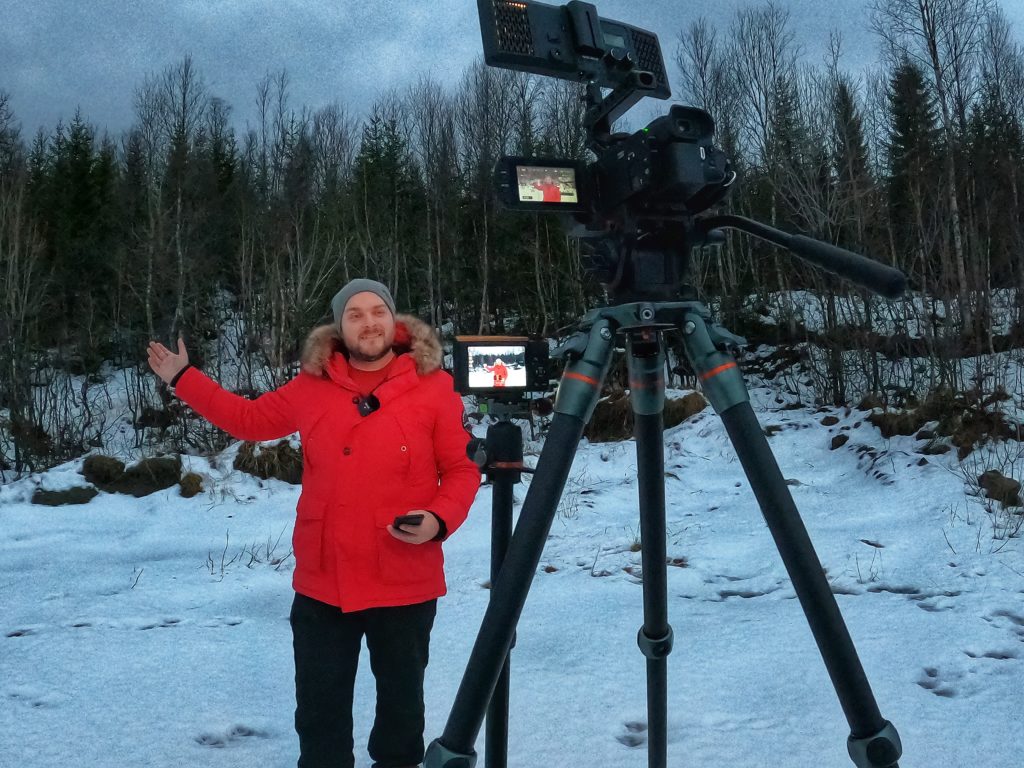
Today, I want to tell you a story about that time when one of my photos was stolen by a travel company to market their product/service. The memory is still very vivid in my mind, mostly because it was last week!
It all started when I noticed I’d been credited in a photo. There are harder ways to find your images online I guess, but there are also services we can use to find our images, such as a reverse image search in Google, or Pixsy, which is a company that constantly searches the images you upload and notifies you when they’re found somewhere. This particular image was being used on Instagram, which makes the subject a little tricky to work out ethically, but it’s my copyright nonetheless.
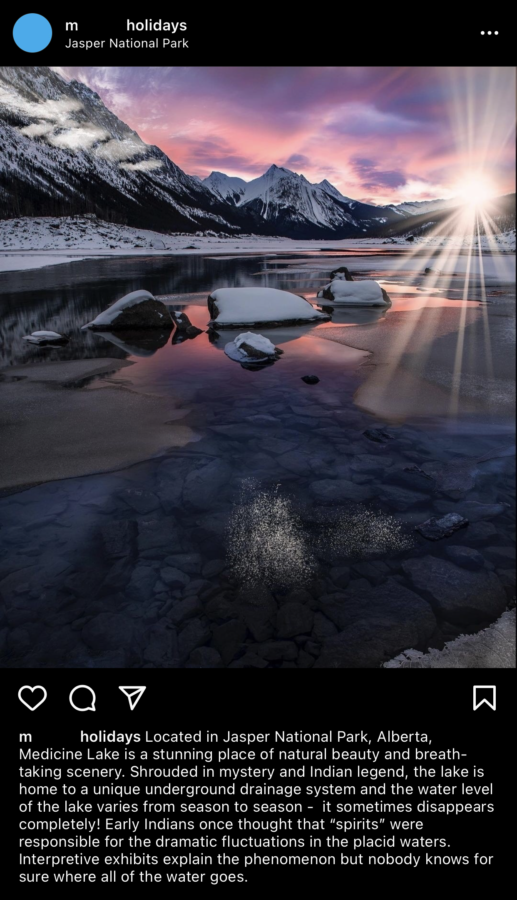
That’s the post right there. As you can see, it’s clearly advertising the fact that this company can take you to Jasper National Park in Canada as one of their destinations, and whilst there, you can go to Medicine Lake. As part of the “bigger picture,” this image forms part of their “grid” on Instagram, headed by their name and a link to their website. Interestingly, when you arrive at their website you can pick up a package to Jasper National Park for £2,069 ($2,760/2,310) per person for eight days. That figure is just worth keeping in mind. The point I’m making here is that this is not a feature page sharing my photo for nothing more than the sake of art; this is a company using my photo as part of their marketing.
As the owner or marketing executive of a travel company, one needs a salary in order to get through life. Similarly, as a travel photographer, I need an income in order to afford such luxuries as rent, food, my phone, etc. My income comes from my photos and I keep a close eye on selling them in order to generate that income. When I saw this post on Instagram I decided to check my stock sales to see if this image had been bought (whilst secretly knowing I hadn’t actually uploaded it to any stock site, but better safe than sorry.) When I was sure that it hadn’t been purchased by this company I took the first step to right their wrong in the form of this comment: –
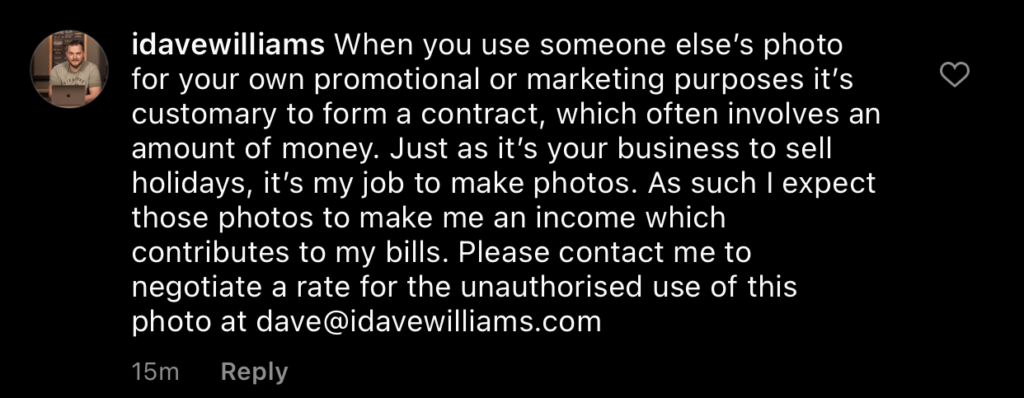
You see, I had to be slightly firm and get my point across, but I felt it appropriate to leave the door open for them to correct the situation rather than slander them (which is what I felt like doing), so I offered my e-mail address. Some time passed with no response and I learned that they’d hit the “restrict” button on my comment, meaning I could see it but nobody else could. This got my back up, so I hit them with a couple more: –

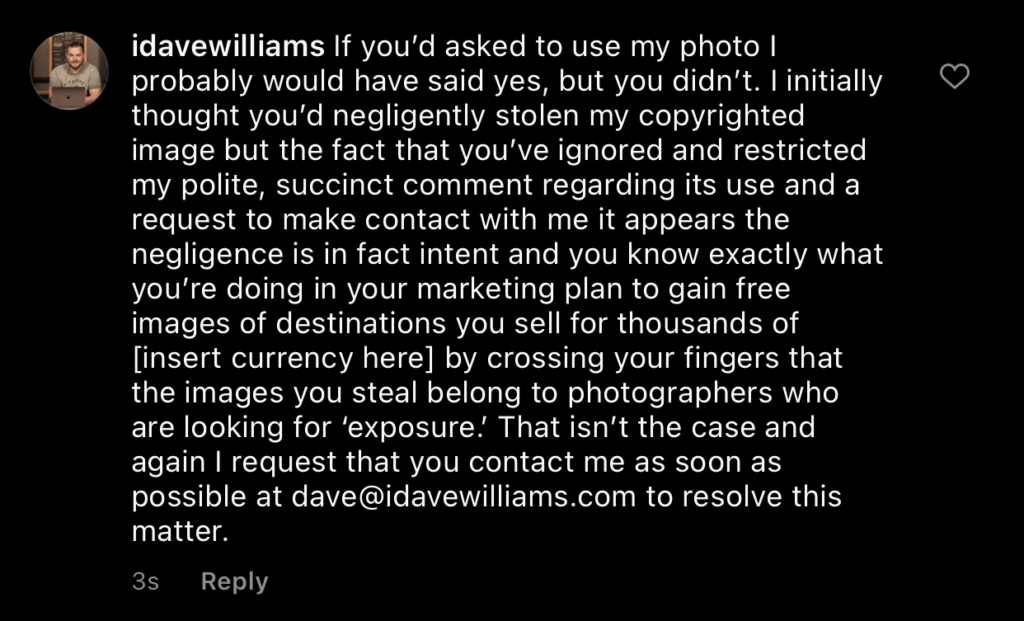
Let me explain: If this company had taken a moment to send me a short message along the lines of, “Hey, we like your photo of Medicine Lake. Do you mind if we share it?” I would have probably just said yes. This isn’t the biggest company, but I’ll refer back to income. When Lonely Planet, Time, National Geographic, Passion Passport, and countless others have used images of mine, they’ve paid me. When travel companies offering vacations use my images in their marketing material, they pay me. So, why should this company, using my image as part of their marketing, be allowed to do so for free?
A little while later (the next day) a message landed in my Instagram inbox: –
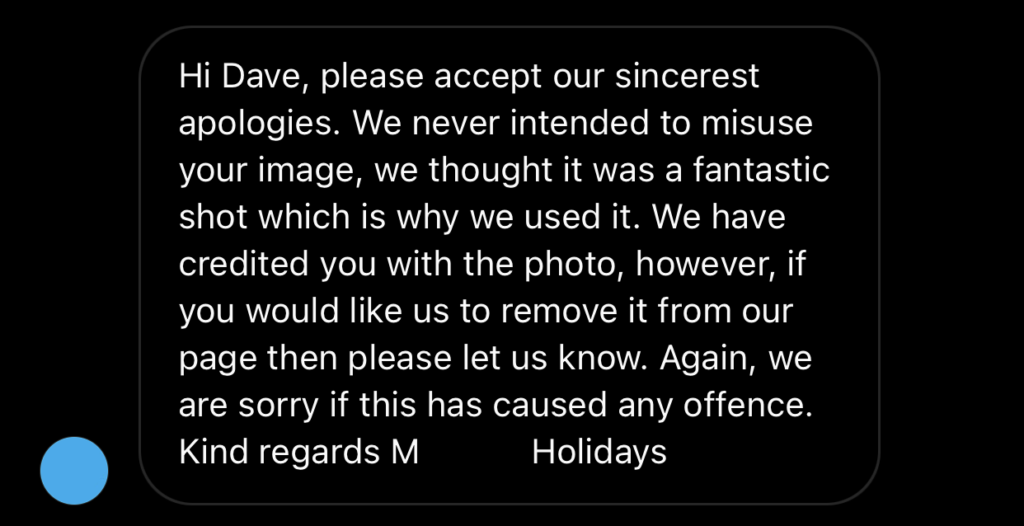
How would you have taken this? Would you have accepted the “sincere” apology and moved on with your life? My reaction was far from an acceptance. This message simply riled me up, and I’ll explain why: Firstly, I asked them twice to e-mail me, but instead, after some pressure, they sent an anonymous message on social media. The next point is that they seem to be implying that they know full well that they misused my image, and I expect their entire social media marketing plan is hinged around misusing people’s images. I have a feeling they simply post other people’s images in the hope that far more often than not they are happy that their photo was recognised and shared by such a company, which links to another thing I’m not happy about with this response: the credit. They pointed out that they credited me with the photo, like I’m sure they do as part of the plan I suspect, that I just described, but let me tell you this for free: credit doesn’t bring home the bacon! I’ve never got in touch with my electricity company and offered to pay my bill with “credit” or “exposure,” and I wouldn’t expect them to let me. There’s no real difference here.
Anyway, another couple of hours passed and I received an e-mail:
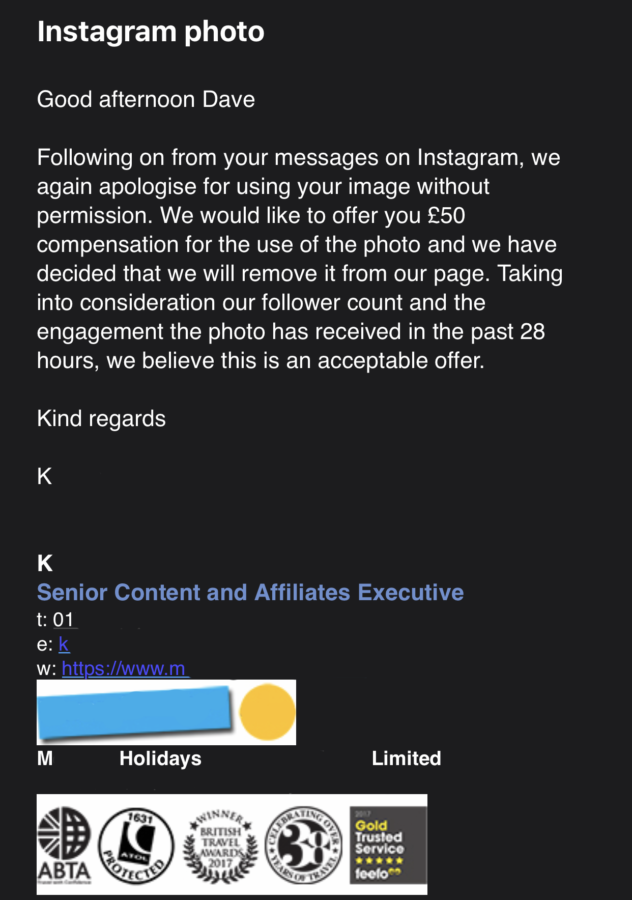
As I said before, I suspect this company relies on sharing images and hoping the photographer is happy with the “exposure” as a major part of their cost-effective marketing strategy. The response from the Senior Content and Affiliates Executive suggests this is the case and they know full well what the market value of a royalty-free image would be at this scale and for this usage type because look:
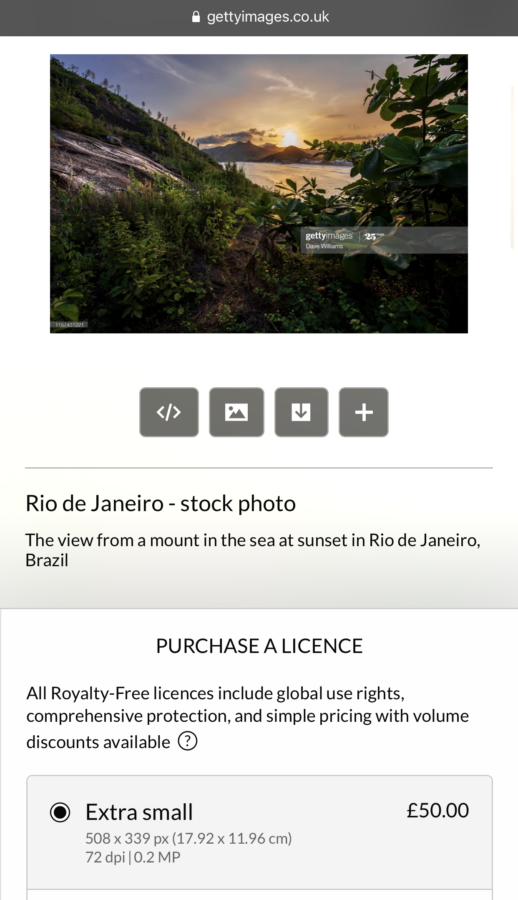
This is one of my images on Getty Images, a reputable stock library. Their price is a fair indication of the market value of such images. I decided to accept the offer of £50—it was a fair offer had it been made upfront rather than retrospectively, and I was no longer in the mood to argue with anybody. My response will be next, but I want to take this opportunity to remind you all that as photographers, the images you create are your intellectual property. There are different methods worldwide for attaining copyright on an image, but first and foremost, unless under contract that says otherwise, that copyright belongs to you. You are a professional and, as such, you deserve to stand shoulder to shoulder with other professionals in equal stead. Just as a plumber sends invoices for their work, a photographer sends invoices for theirs. If their intellectual property is being used without permission, it is something that should be dealt with according to law. Realise your value and never let anybody steal your hard work.
For the record, I’m still waiting for the payment to be made, but here is my response:
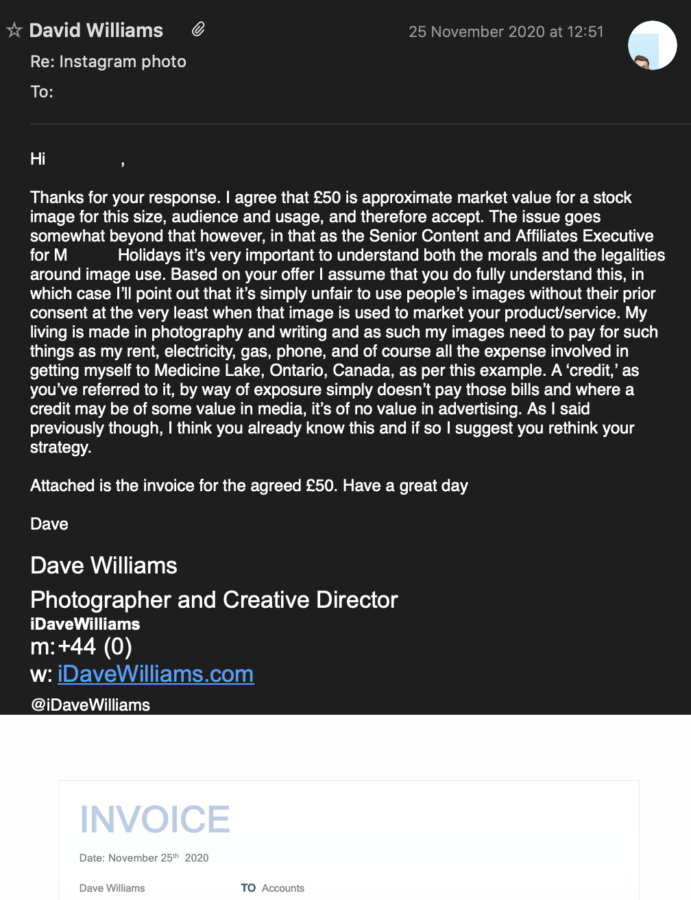
It’s your copyright. It’s your property. If it’s stolen, don’t let anyone off the hook. We need to take a stand against image theft, and we’re all in it together.
Much love
Dave
